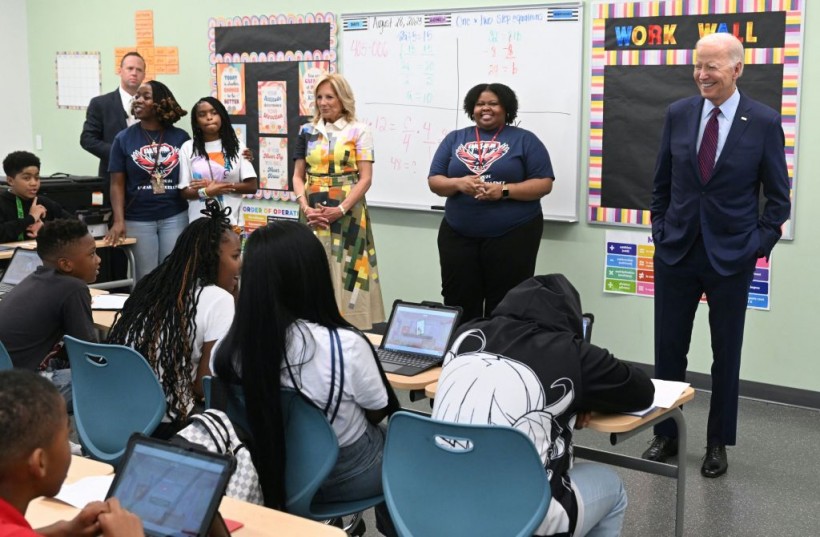Toler Elementary School in San Diego, California, is now using a new artificial intelligence platform that leverages personalized AI chatbots to boost student curiosity.
Dubbed the SchoolAI platform, the tool uses chatbots to help teachers supply answers to the various questions asked by students, as reported by CBS8.
The AI tool is comparable to giving every pupil individualized digital assistance. Additionally, these kids' curiosity is piqued to ask additional questions because they receive prompt replies to their queries.
Elevate Education's Ken Shelton assists school districts in developing cutting-edge AI strategies. According to him, the primary benefit of AI bots is that they inspire pupils to start posing questions.

(Photo: SAUL LOEB/AFP via Getty Images) In the education industry, where physical safety threats to students and educators have long been a concern, a new menace is on the rise - cybersecurity attacks.
Every student has a personal chatbot to ask questions, so their learning process is tailored to them. They hone their critical thinking abilities.
Shelton thinks teachers may start teaching students how to use it to feel more invested in their studies rather than fearing it. According to him, we can help students figure out how to use it to enhance and assist their educational process.
Laurie Brady Francis, the principal of Toler, states that she and her team are constantly searching for creative ways to involve kids, help them discover the love of learning, and give their education greater significance.
According to her, Toler is the only school in the district utilizing the SchoolAI initiative, which provides students with a personalized chatbot experience. After a month of use by the students, the principal hopes she can get the software again for the upcoming school year.
Read Also: AI Curriculum in US Public Education, Pursued in Orange County
AI-Powered Grading, Learning
The Texas Education Agency recently unveiled an AI-powered essay grader that will automatically review students' work for the state-mandated standardized tests, demonstrating that artificial intelligence is only used in educational contexts.
The tests will continue to be created by humans and won't alter; instead, Texas' most recent AI innovation, which makes promises to be distinct from ChatGPT, will verify them.
Initially, all student examinations will be processed by AI, and only 25% of the replies will be sent to human graders for additional scrutiny. Texas might save anywhere from $15 to $20 million with this new AI technology by not hiring human graders through outside firms.
AI has reportedly been used in online education through sites like Duolingo and Khan Academy. Chatbot tutors using the GPT-4 model.
That is a sizable language model created by OpenAI that can produce responses in response to user queries after being trained on enormous text datasets.
President Biden recently gave the government instructions to mold AI's potential to revolutionize education by developing tools to assist teachers in implementing AI-enabled teaching aids like individualized tutoring.
Google's AI Learning Tools
Google recently demonstrated its newest educational products at the UK's Bett Ed-Tech Show, using AI to streamline classroom administration, question generation, and PDF readers.
The most recent addition, first offered in June of last year, allows teachers to add questions to YouTube videos assigned in the classroom.
According to Google, as students answer questions, they may now get quick feedback while giving professors in-depth information that enables them to guide students more precisely when needed.
It has been reported that teachers will soon be able to test out questions that AI suggests.
Related Article: Congressman Pursues Master's Degree in Machine Learning for AI Regulation Understanding

(Photo: Tech Times)









